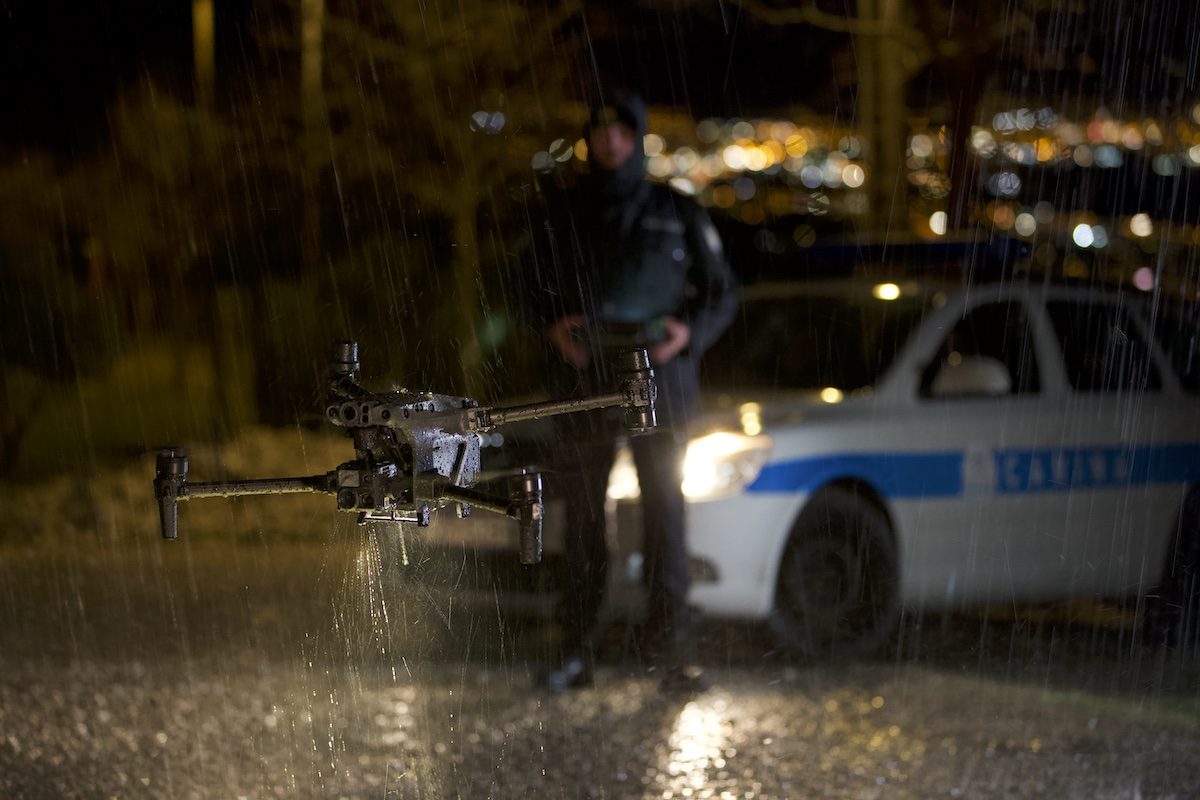The North Carolina Senate recently introduced Senate Bill 670, a piece of legislation that could significantly impact the use of drones by public safety agencies across the state. The bill prohibits state and local government entities from purchasing or acquiring small unmanned aircraft systems (sUAS) manufactured or assembled by “covered foreign entities,” primarily targeting drones linked to China and Russia. This restriction extends to any state funds used for such purchases, including grants and cooperative agreements. The bill is set to take effect for drone purchases made on or after July 1, 2027.
Key Provisions of Senate Bill 670
Under the bill:
-
Prohibited Vendors: Drones manufactured or assembled by entities domiciled in China or Russia, or those under their influence, are banned. This includes subsidiaries and affiliates of such entities.
-
Scope: The ban applies to all small unmanned aircraft systems weighing less than 55 pounds, including payloads.
-
Funding Restrictions: State funds cannot be used to purchase these drones, even indirectly through grants or contracts.
Concerns Over National Security
The bill’s sponsors argue that the legislation is necessary to address national security concerns. Chinese-manufactured drones, particularly those from market leader DJI, have faced scrutiny over potential data security risks. Critics worry that these drones could be exploited for espionage or data breaches due to their connections with foreign governments
Challenges for Public Safety Agencies
While the bill aims to enhance security, it raises significant challenges for public safety agencies that rely heavily on drones for life-saving operations. Drones are increasingly used in search and rescue missions, disaster response, crime scene analysis, and firefighting. Their ability to provide real-time aerial surveillance and thermal imaging has proven invaluable in saving lives and protecting first responders.
However, many – if not most – public safety agencies currently depend on DJI’s affordable and reliable platforms. U.S.-manufactured alternatives remain limited in availability and often come at a higher cost. Agencies fear that the restrictions imposed by SB 670 could increase costs, as U.S.-made drones are typically more expensive than their Chinese counterparts, and provide more limited options in lower price ranges. Budget constraints could force agencies to scale back or abandon drone programs altogether if the law passes.
The Debate: Security vs. Accessibility
The debate surrounding SB 670 highlights a broader tension between national security priorities and practical needs. Lawmakers emphasize the importance of reducing reliance on foreign technology to mitigate potential risks. On the other hand, public safety officials and commercial users argue that restricting access to proven tools jeopardizes their ability to respond effectively to emergencies.
Proponents of the bill believe it will encourage investment in U.S.-based drone manufacturers, fostering innovation and reducing dependence on foreign technologies. Critics counter that such a shift will take time and could leave agencies without adequate tools during the transition period.
The Growing Role of Drones in Public Safety
Despite these challenges, the use of drones in public safety continues to expand rapidly. From locating missing persons in rugged terrain to providing situational awareness during active shooter incidents, drones have revolutionized emergency response efforts. Their ability to save lives is well-documented, with numerous cases demonstrating their effectiveness in reducing response times and enhancing operational efficiency.
NC Senate Bill 670 reflects a growing trend among U.S. lawmakers to prioritize national security concerns over cost and convenience in technology procurement. While the intent behind the legislation is clear, its implications for public safety agencies are complex. Striking a balance between security and accessibility will be critical as North Carolina navigates this transition.
For now, public safety agencies must prepare for potential disruptions while advocating for solutions that ensure they can continue leveraging drone technology to protect lives effectively.
Read more:


Miriam McNabb is the Editor-in-Chief of DRONELIFE and CEO of JobForDrones, a professional drone services marketplace, and a fascinated observer of the emerging drone industry and the regulatory environment for drones. Miriam has penned over 3,000 articles focused on the commercial drone space and is an international speaker and recognized figure in the industry. Miriam has a degree from the University of Chicago and over 20 years of experience in high tech sales and marketing for new technologies.
For drone industry consulting or writing, Email Miriam.
TWITTER:@spaldingbarker
Subscribe to DroneLife here.


